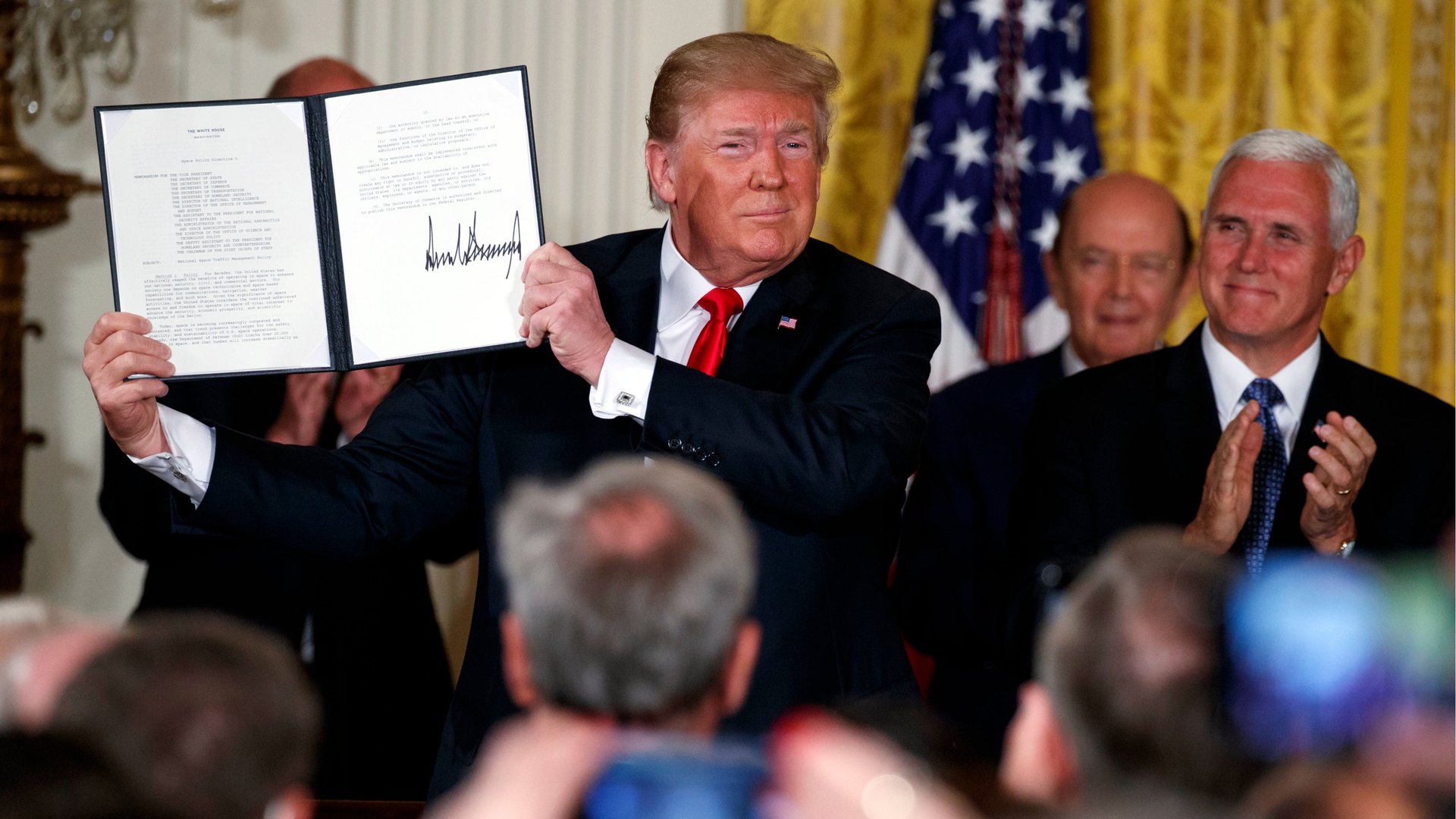Donald Trump is not getting his space money
President Donald Trump loves big ideas in space, but not enough to win over the lawmakers he needs to fund them.


President Donald Trump loves big ideas in space, but not enough to win over the lawmakers he needs to fund them.
Last week, the White House submitted a late funding request for an additional $1.6 billion in spending on a proposed Artemis moon program to return astronauts to the lunar surface by 2024. Today, the House Appropriations committee left that request out of its spending plan for NASA and ignored many of the administration’s other space priorities.
Without that funding, any hope of the accelerated mission to the moon touted by Vice President Mike Pence is likely to disappear.
It was a similar story yesterday, when the committee rejected White House plans to consolidate military space activity into a new service called Space Force.
Both of these projects could be funded if the Senate chooses to make them a priority, but each would likely require the lifting of caps on government spending that otherwise will force more than $100 billion in cuts next year. While both parties have reason to find a deal, the state of those negotiations remains tenuous, especially after Trump walked out of a meeting on infrastructure spending with congressional leaders today, a protest against their continued investigations into his conduct in office.
Political battles aside, it’s not clear that the administration tried to lay the groundwork for their space proposals with the lawmakers they need to approve them. The last-minute moon program was announced before NASA administrator Jim Bridenstine, a former lawmaker, had spoken to the relevant committee chairs.
In his NASA budget, Trump proposed cuts in satellite missions that gather important scientific data about the climate, ended spending on a new space telescope, and eliminated the agency’s science education program. Lawmakers restored all those programs, as they have the past two years, and declined to add new funding to develop technology for moon landers and other necessities to return to the earth’s nearest neighbor on a faster timeline.
The White House had proposed funding the moon mission with money from the Pell Grants program, which provides grants for low-income students to pay for college. No current students would have been affected, but the program relies on those funds during tough economic times, when demand for the grants goes up and tax revenue goes down. Rep. Nita Lowey, who chairs the House appropriations committee, called it an “unconscionable proposal.”
On the Space Force front, it appears that the Department of Defense just hasn’t done its homework. “The plan leaves many unanswered questions and lacks important details and supporting analysis to justify the proposed size, scope, cost, roles, and authorities for the new military service,” the lawmakers wrote in the report accompanying their spending legislation.
Defense experts say there is value in creating a Space Force, but a whole-scale bureaucratic re-organization will need to be carefully orchestrated. Yesterday, Trump tapped Barbara Barrett, the former head of a federal aerospace analysis group, to become Secretary of the Air Force, and insiders expect refining the plan will be her top priority.